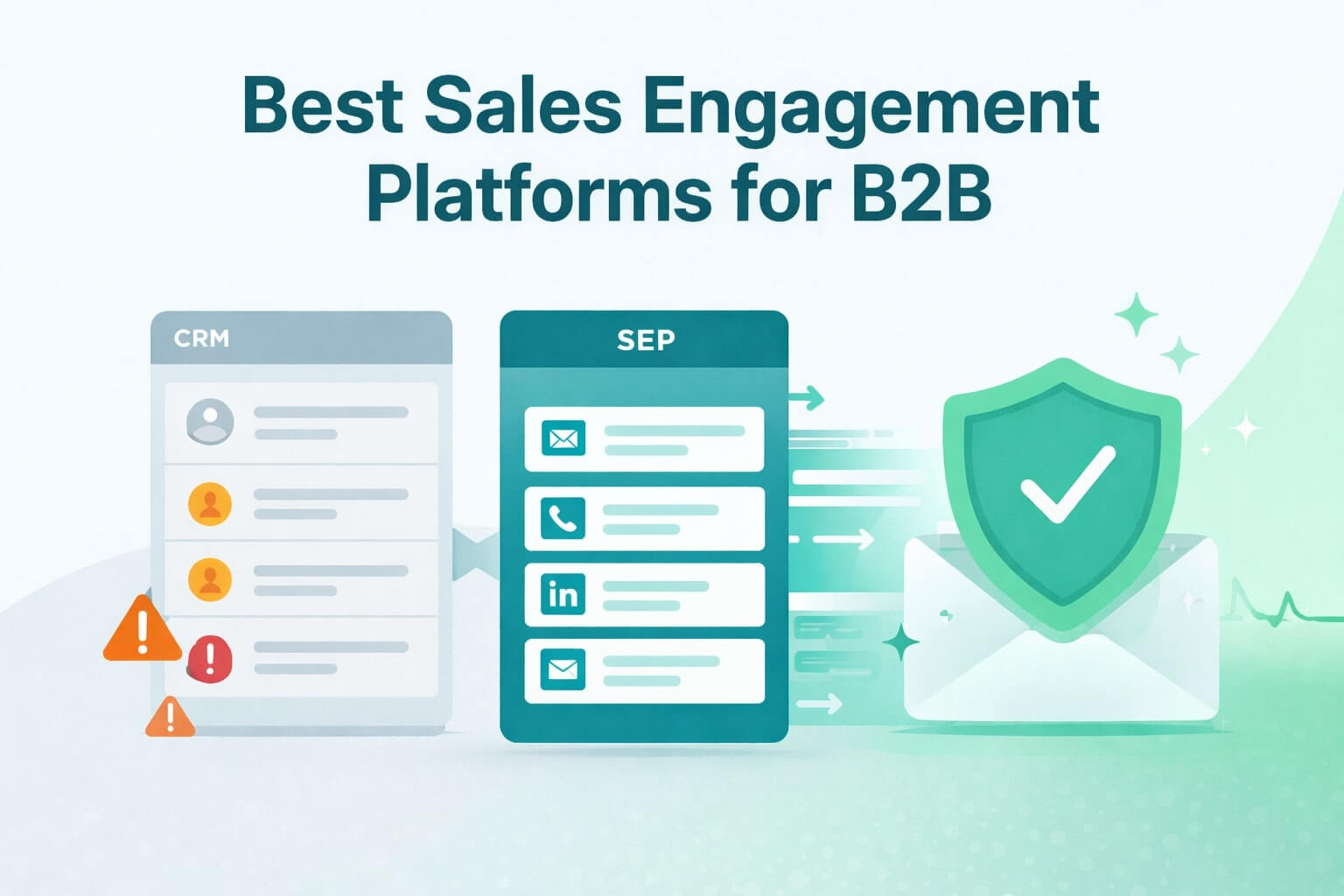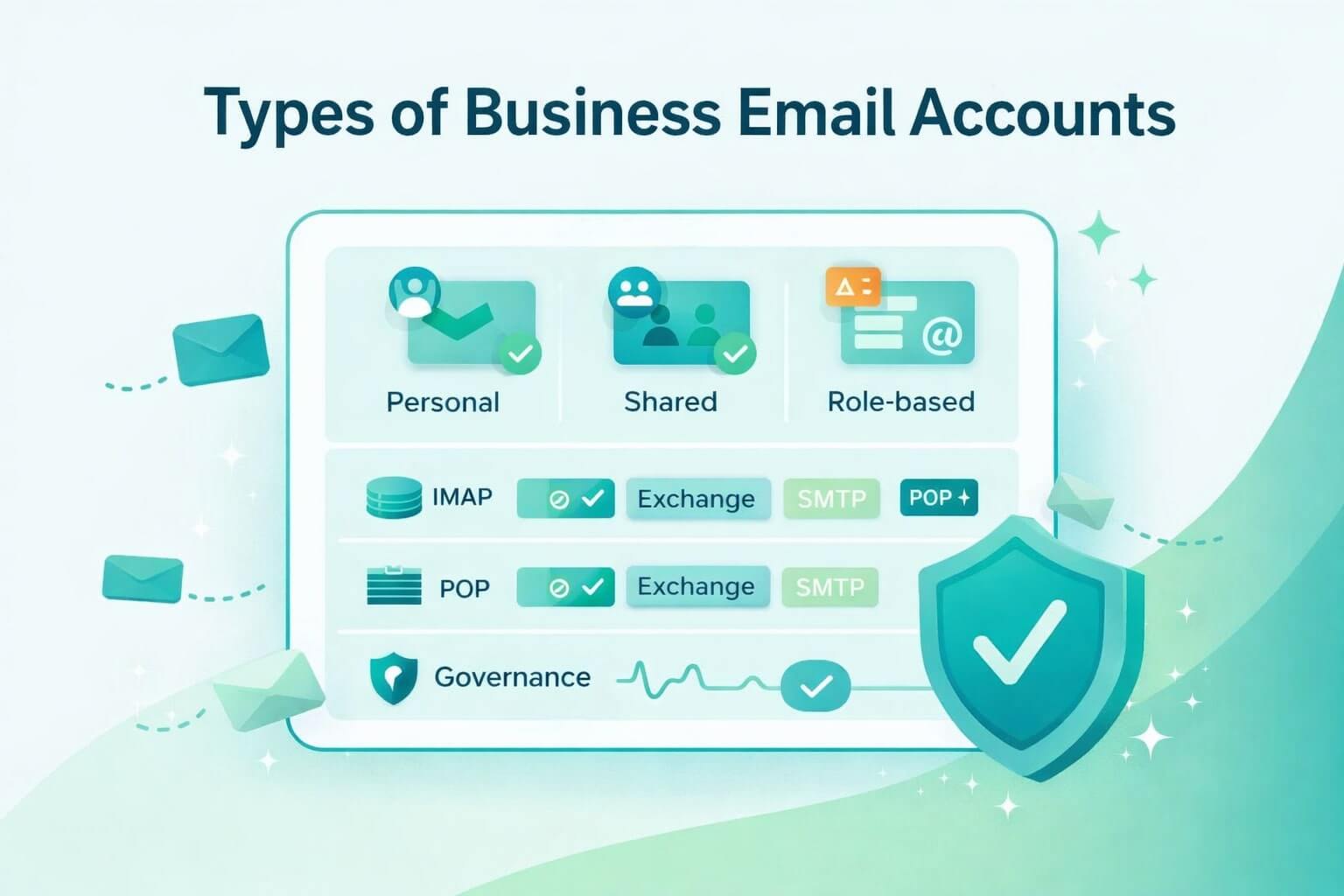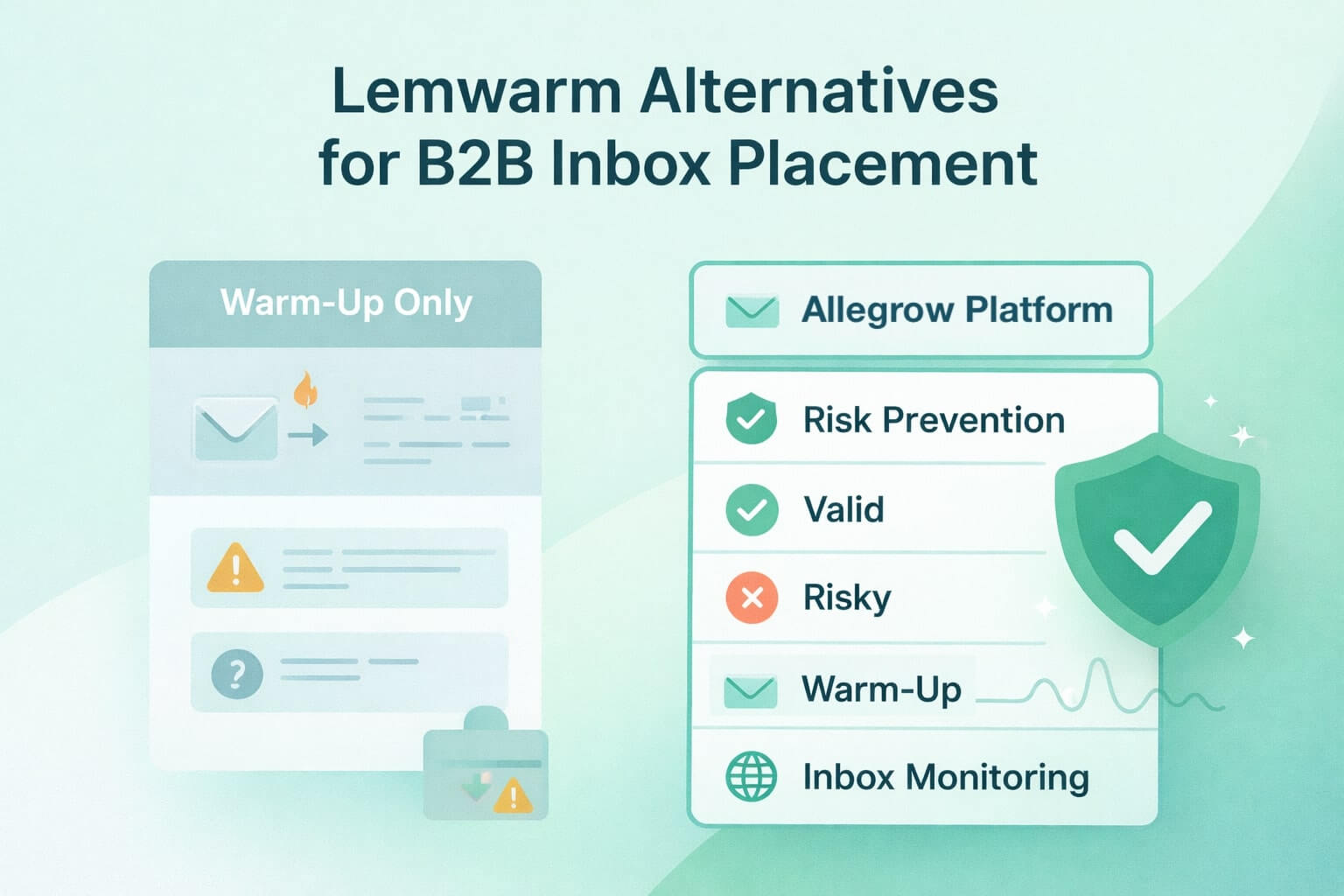When you’re creating email sequences, lots of people wonder: ‘How long should cold email sequences be?
The answer is: It depends on the size of the business you’re reaching out to.
For an SMB, 5-8 touch-points can last over 30 days. Whereas, if you’re reaching out to enterprise prospects, sequences are usually comprised of 10 to 18 steps over the course of 30-60 days.
You’ll want to make sure that you don’t use too many email touch-points as part of this sequence - otherwise, your emails are more likely to be filtered into spam folders, rather than the primary inbox due to poor deliverability.
TL;DR: Cold email sequences should be shorter for SMBs (5–8 touchpoints, 30 days) and longer for enterprises (10–18, over 60 days). To reduce spam risk, limit emails to no more than 50% of your total steps. Add non-email touchpoints like LinkedIn DMs, voice notes, direct mail, and social selling to boost engagement. Spread contacts across timelines to avoid overload and manual spam reports. Always verify contacts before sending and avoid risky inboxes. Allegrow protects outbound programs with automated suppression of spam traps, decayed emails, and risky contacts—keeping your sender score safe at scale.
How Many Cold Email Steps Should You Include in Your Sequences?
When email steps get overused, prospects will create a manual spam report like the below simply because they are annoyed:

When this happens too often, your emails will be filtered into spam folders, resulting in worsened email engagement over time.
Email providers have stated anything more than a 0.1% report rate is considered high, so it’s vital to minimize this risk while running outbound campaigns.
In order to reduce this risk, you’ll want 50% or less of the total steps in your sequence to be email steps.
- For SMB contacts - maximum of 2-4 total emails in sequence made up from 5 to 8 total touch points.
- For Enterprise contacts - maximum of 5-9 total emails in sequence made up from 10 to 18 total touch points.
Spacing those sequence steps over the correct period of time is also vital to ensure you don’t overload contacts with communication and cause annoyance. The ideal time-lines to spread those touch points across are:
- For SMB contacts - Spread your 5-8 total touch points over 30 days.
- For Enterprise contacts - Spread your 10-18 total touch points over 30-60 days.
Besides Email, What Other Touchpoints Should You Include in a Cold Outreach Sequence?
Seeing as you’ll only want 50% of the total steps in the sequence to be emails, you’ll need to get creative with multi-channel outreach for those other touch points.
Adding diversity to your sequence steps will help improve overall engagement and prevent your emails from being marked as spam.
Here’s 6 different types of touch points you can add to your campaigns beyond just emails:
LinkedIn Connection request: Connecting with a prospect on LinkedIn is rarely seen as being aggressive in the eyes of a prospect and is just another way to help build a sense of familiarity before your next touch point.
LinkedIn DMs: It’s important to execute LinkedIn prospecting correctly. Rather than just connecting and pitching, aim to get a response and build engagement. Here’s an example of a bad vs a good LinkedIn sales DM:

Calls: Some sales teams try to shy away from making outbound calls, but they still work well. This separates you from the crowd of companies too scared to start a conversation.
Direct Mail: Services like Sendoso and ReachDesk allow you to send packages during prospecting. This is a great fit for accounts that you expect to convert to high-value customers. Increased engagement on these key accounts will help increase the reputation of your domain, so even the communications you send to prospects that aren’t receiving these gifts are likely to be more impactful.
Voice notes: Creating personalized voice messages from a script makes you seem more human, which is one of the fundamental steps to getting a response and more engagement. You could either deliver this by voicemail or Linkedin:

Social Selling: This subject gets a lot of hype, but people rarely do it authentically inside a sequence. Here’s a great example: We were in the sales process for Nylas when their their AE noticed our company was hiring and posted the following message:

Other Email Sequence Best Practices to Boost Replies (Without Damaging Deliverability)
To help keep deliverability in check, you’ll also want to consider the number of contacts at a single company you include in the same sequence, and the engagement of those contacts.
The table below shows how the limits you should place on your sequence vary if you’re marketing to Small businesses, Mid-market or and Enterprise:
Finally, making sure you don’t reach out to risky contacts is a core component to keeping your deliverability high. In order to do this, you can utilize an email Safety Net, which runs risk analysis and prevents you reaching out to contacts who can damage your deliverability:





